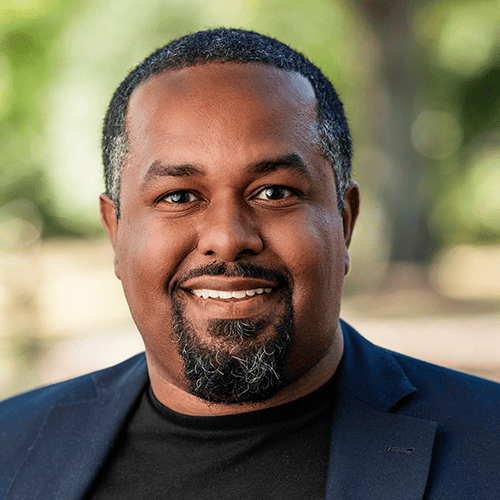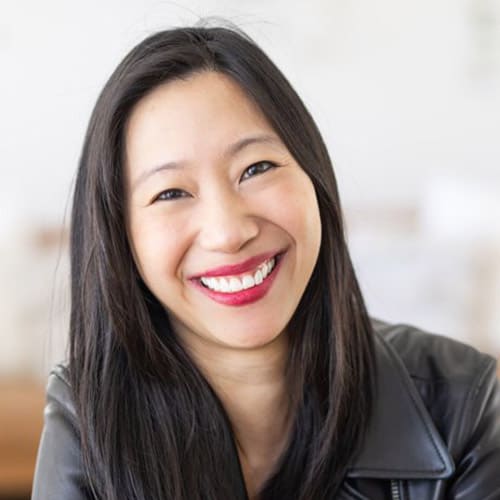About This
Report

This report lays out a set of recommendations for brands and organizations seeking to live more fully into the promise of accessibility and inclusion for all. The report is rooted in the perspectives of 200+ leading voices – people with disabilities and demonstrated allies – whose experiences you’ll find in the themes and takeaways that follow. We set out to be practical and precise, ultimately delivering a set of actionable guidelines for decision-makers committed to more inclusive language, programs, hiring, internal initiatives, campaigns and products.
The report is a collaboration of Gauge – a first-of-its-kind insights platform where diverse, experts voices like those you see here – and Diversability, an Asian-owned, disabled-run, and disabled-led social enterprise that elevates disability allyship. In delivering it, we aim to support brands, organizations and nonprofits in pursuit of genuine inclusion, belonging and care.

Joshua DuBois
CEO & Founder
Gauge
Friends:
The disability community is diverse, growing, and perhaps one of the most ignored customer segments. According to the CDC, up to 1 in 4 adults in the U.S. have some type of disability.
The path to today is long, complex and often painful – from the early 20th century, when people with disabilities were regularly seen as individuals to be “cured” or kept from view, to the Independent Living Movement of the ’60s/’70s, to the passage of the Americans with Disabilities Act in 1990s, and contemporary fights for equity. Throughout, the disability community has sought to carve a rightful space in which to live with dignity, access and joy.
Unfortunately, most companies have missed the opportunity to support people with disabilities in this pursuit. Physical spaces, products, services, and digital platforms are still built and rolled out before they are fully accessible. Stereotypes in marketing and media abound. Market research misses key perspectives. The community faces higher rates of unemployment and underemployment across the board. Every day, brands miss both the moral moment and the market opportunity to do better.
At Gauge, we believe that change begins with sharper listening. That’s why we teamed up with Diversability – one of our invaluable walking partners in this work – to build the report presented here: a set of principles to help brands looking to effectively hear – then meet – the needs of people with disabilities. We aspired to offer a simple set of guidelines and guardrails, without obscuring or diminishing the inherent complexity of the identities it sets out to illuminate. We hope this report challenges and energizes you. We can’t wait to see what you’ll do.
Onward,
Joshua DuBois
Founder & CEO, Gauge.ai

Tiffany Yu
CEO & Founder Diversability
As the CEO & founder of Diversability, I am proud to present our collaboration with Gauge on this report. This work is deeply important to me on both a personal and professional level. I started Diversability based on my own personal experiences of becoming disabled at age 9 and feeling isolated and disempowered in my disability experience. Today, our mission at Diversability is to elevate disability pride, build disability power, and advance disability leadership.
Choosing to partner with Gauge was a natural decision. Not only have I been a regular Gauge contributor since January 2022, but their dedication to shaping more inclusive campaigns, products, and initiatives also resonates deeply with our mission at Diversability. Together, we brought together the rich cultural insights and perspectives of over 200 leading voices from within the disability community and our allies, ensuring they were compensated and respected for their valuable input. Disabled people have been engaged in every part of the formation of this report, with over 25% of the respondents coming directly from the community that we’ve built at Diversability.
The disability community has long been underrepresented and underserved in the marketing landscape, and it's time for that to change. The conversation we are initiating through this report matters. It is a call to action for brands to embrace disability inclusion and accessibility wholeheartedly. Disability inclusion is not just a checkbox, it should be an integral part of every brand's ethos. I hope this report serves as a catalyst for greater disability allyship, breaking down barriers, and paving the way for a more inclusive and accessible future. By recognizing the nuances of language, challenging stereotypes, and adopting actionable strategies, brands can genuinely meet the needs of the disability community and have a deeper understanding of the importance of disability inclusion as a smart business decision.
Thank you for being part of the positive change we can create together.
Tiffany Yu
CEO & Founder, Diversability
Key
Takeaways
Key Takeaways
- Present the word “disability” with neutrality or pride, rather than a word that is negative or something to be ashamed of
- For most members of the community, “disability” is not a negative word, so euphemisms used to replace it are seen as harmful and offensive
- Disabled people are not a monolith; when possible, ask individuals about the terms that they prefer, and respect those preferences
- Steer clear of correcting or “softening” the language that disabled people use to describe their own disabilities
- Avoid phrases such as “hearing-impaired” and “wheelchair-bound,” which have negative and harmful connotations, unless they are specified as someone’s preferred terms
- Ensure advocacy activations and other events mandate mask-wearing and are otherwise accessible
- Engage with Disability Pride Month in July, and continue to advocate for the disability community throughout the year
- Ensure products are adaptive and accessible for folks with a wide range of disabilities
- Avoid tokenizing the disability community in campaigns (i.e. using disabled models in an ad campaign for a product that is not adaptive)
- Represent disabled people as well-rounded human beings in all of their manifestations — not only as people struggling against adversity
- Companies can and should promote intersectionality in the inclusion of disability in both campaigns and company demographics
- Many respondents report experiences of discrimination in the hiring process and/or in work environments — this must change
- Brands should hire disabled people, pay them well, and provide necessary accommodations without asking invasive questions
- Employers should be educated on ADA laws, as well as other ways to support disabled employees
- Provide spaces for disabled employees to share concerns, and make needed changes
SECTION ONE
Language
Euphemisms are harmful; many respondents choose “disabled” to self-describe
The language surrounding disability is continually evolving, and non-disabled people should be open to learning and evolving as well

Language
The majority of thought leaders surveyed prefer the word “disabled” to describe themselves, and emphasize their desire to see the word used as a neutral descriptor, without the negative connotations non-disabled people often ascribe to it. The majority of respondents find euphemisms (terms like “special needs” or “differently-abled”) offensive because they imply that disability is an inherently negative condition in need of positive spin.
For people outside the community referring to those within it, most respondents prefer “disabled people,” or “people with disabilities.'' Of course, respondents also emphasize that the community of people with disabilities is diverse and complex, and what some find offensive may be preferred by others. What frustrates many is when those without disabilities make assertions about what terminology is best. Many respondents have witnessed non-disabled people correcting the language that disabled people use to describe themselves >– a painful, diminishing experience.
Importantly, appropriate language is only a starting point. People with disabilities see using respectful language as the floor, not the ceiling, for genuine allyship and advocacy.
SECTION TWO
Perspectives on Being “Disabled and Proud”
The notion of “pride” regarding one’s disability status generates a range of responses from thought leaders. In this section, we’ll see a nuanced but navigable set of attitudes on this topic.
While many respondents express deep pride in being disabled, the concept of "disability pride" is personal — it is not a one-size-fits all mentality for people with disabilities

Perspectives on Pride
In the face of a society that is inherently ableist — that is, designed for non-disabled people — many of the thought leaders engaged share a deep, abiding sense of pride in being disabled. Naturally then, these leaders express a pronounced desire to “reclaim” the word “disabled” from any pejorative connotations.
Importantly though, some respondents are either unfamiliar with the term “disability pride,” or don’t feel that the concept applies to their own experience. For many whose disability/disabilities cause them suffering, “pride” doesn’t feel like precisely the right word. Some say that they are proud of themselves, but not necessarily of their disability, per se. For many in this camp, “disability neutrality” feels like a better goal.
Across viewpoints, we also hear a strong emphasis on the necessity of highlighting the diversity and intersectionality of the disability community – a particular point of pride and empowerment for many. Taken all together, the perspectives point to the importance of ensuring that members of the disability community are empowered to speak for themselves — a theme we’ll turn to in the next section.
SECTION THREE
Lessons of the Pandemic
Disabled people have experienced being treated as “less-than” or expendable throughout the pandemic
The pandemic demonstrated that accommodations are absolutely achievable — they just weren’t prioritized until they were needed by everyone

Respondents emphasize the significant impact of the pandemic on the disabled community. Many find it frustrating that accommodations that would have hugely benefited disabled people (i.e. virtual options, freedom to work remotely, telehealth, etc.) were only made once they were important for non-disabled individuals as well. Painfully, disabled people also feel they were treated as if they were “expendable” during the pandemic. To counter this, they urge non-disabled folks to remember that disability can affect everyone, and encourage them to unpack ableism in their everyday lives. To this point, thought leaders stress the importance of showing respect to those with disabilities through actions and language (this includes, again, not shying away from using the word “disabled”).
Another way for allies, brands and organizations to support the disability community is by ensuring that events and actions are all accessible. Notably, this includes wearing masks, and mandating mask wearing, in public spaces, as the pandemic continues, as those with disabilities may be at acute risk. Thought leaders report that disabled people are often left to fight with city legislators about accessibility concerns, and ask that allies lift up their voices and advocate for accessibility in all public spaces. A rallying call for the community is: “Nothing about us, without us.” Allies should feel responsible for delivering on this.
SECTION FOUR
Brand Engagement & Allyship
Desire to see broader representations of people with disabilities — who have full, complex humanity beyond those disabilities
Representation from brands is not enough: they must ensure disabled people are paid fairly
Brands should actively support disability advocacy issues and embrace the principles of disability justice
Brands that offer adaptive items stand out as genuine and intentionally inclusive
Allies should use their privilege to amplify disabled voices, without making assumptions or speaking on their behalf

Across responses, we heard a clear desire for brands to represent disabled people in an intersectional and authentic way – both in ad campaigns and on-screen – and a strong urging to consult members of the disability community for guidance. Thought leaders also emphasize though that, to truly destigmatize disability, representation is not enough. Respondents want brands to ensure their products are adaptive and accessible for people with a wide range of disabilities in order to fully support and recognize the community.
Respondents say that brands hiring disabled people and donating money to relevant organizations is viewed as a powerful signal to the disability community of a brand’s commitment to impact. Importantly, respondents want to see companies promote inclusion of the disability community through their hiring and internal policies to back up the inclusive messages in their external-facing campaigns. Thought leaders also emphasize the importance of education to help the general public become more knowledgeable about the disability community, and hope brands will use their reach to help spread awareness and advocate.
This points to an additional critical area. Across thought leader responses, there is a clear emphasis on the role of allies — a major opportunity for brands and the people leading them. Respondents say that non-disabled people use their privilege to directly amplify and signal-boost their words and needs. Again and importantly, though, thought leaders emphasize that allies should not speak for the community, or imply that they know better. When in doubt, allies should ask questions, offer support, and not take issue if their offers to help are turned down.
Employment: Hiring & Discrimination
Education for employers is paramount in working to eliminate workplace bias
Businesses should hire disabled people, provide them with accommodations as needed, and pay them equally to other employees
Employers should provide spaces for employees with disabilities to share their concerns, and respond accordingly

Many of the thought leaders surveyed have experienced some form of discrimination during the hiring process and/or once fully employed by a company. Some report that they are treated differently through the interview process depending on whether they self-report their disability or not. Often, they say, there is not an explicit acknowledgement that they are not hired because of their disability; rather, there is a strong feeling — difficult to prove to others — that discrimination has taken place. This may occur because an employer wrongly assumes that the prospective employee will not be able to perform the job, or due to assumptions about the cost or hassle of necessary accommodations.
Education is just one piece of the puzzle for employers seeking to remove bias from the workplace, but it is vital. They must be up-to-date on ADA laws in the hiring process as well as in providing accommodations to employees, and should also provide spaces for disabled employees to share their concerns freely.
Respondents urge companies to hire disabled people, to pay them well for the work that they do, and to provide accommodations freely and without asking invasive questions about why they are needed. They also note that accommodations benefit everyone — for example, we have seen that flexible or fully remote jobs are helpful to everyone from parents and caretakers to folks with a wide range of disabilities.




